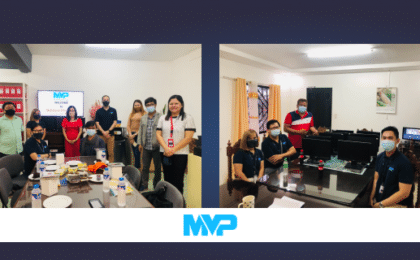Offshoring, Outsourcing, And Remote Work – What Is The Difference?
We wanted to clear up the difference between offshoring, outsourcing, and remote work.
4 | August 8, 2021
With so many terminologies floating around, we wanted to clear up the difference between offshoring, outsourcing, and remote work.
At a glance, the three terms look and sound alike. All three terms are often used interchangeably, but there is a difference.
What is offshoring?
Offshoring is the process of sending work internationally. This means that the work is completed in another country, but this can save the business huge costs when it comes to recruitment and onboarding a new team member locally. For example, offshoring with MVP can save you up to 75% of your overhead costs!
When offshoring, the business has complete control over who the task is being sent to. An offshore team member is an extension of your local team and a specialist in their area. By offshoring work, you are expanding the talent pool of your current team. You can manage your offshore team members in the same way you manage your local team, with your offshore MVP following the same standards and protocols your local team follows.
What is outsourcing?
Outsourcing is when a business outsources work to another business, company, or person. It is more commonly referred to as contracting work out to an external organisation. Outsourcing is very popular as often businesses do not have the required specialist on their current team, but want to keep work within their local area.
The benefits of outsourcing are similar to offshoring; saving on cost, taking advantage of specialist skills, and saving on internal business time.
What is remote work?
Remote work is any work that is done outside of a place of business. Offshoring and outsourcing can be defined as remote work, but a contractor working for a business can also do remote work.
During the Covid-19 pandemic, many workers became ‘remote’. Working from home, or working remotely, simply means working away from the usual office. The benefits of remote work for the business include saving on office costs. Remote workers also benefit, being able to work from anywhere in the world, having greater working flexibility, and saving time and money on transportation to and from work.
Which is right for your business needs?
This depends on your business model, your current team, and the work you are needing to be completed. Offshoring is a great option when looking for a specialist who is located offshore, but you still want them to be considered part of your local team. Since you can directly manage your offshore team members, offshoring is often a beneficial and practical option for business managers.
Outsourcing may be a good option when you need work done by a specialist, but you are happy for that individual to complete the work without assistance.
Remote work is a highly beneficial option for both business managers and their workers, as recent studies have shown that remote teams are often more efficient and motivated.
The MVP Difference
MVP Asia Pacific is a BPO with a difference. We find you offshore specialists in your industry who can complete the work given to them to the same standard as your local team. We like to think of it as finding you an offshore team member. We work with you and your business needs, to find you a team member who will fit into your company culture and who knows their stuff. We can find your MVP across a range of industries including finance, web development, data, and virtual assistance, IT and cyber, and so much more.
If you are looking to streamline your business by offshoring, contact MVP today!

























































